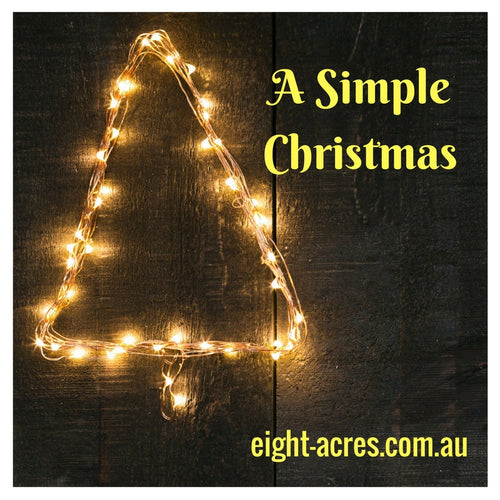The Simple Life - How did you get here?
Frugality is one of the most beautiful and joyful words in the English language, and yet one that we are culturally cut off from understanding and enjoying. The consumption society has made us feel that happiness lies in having things, and has failed to teach us the happiness of not having things. ~Elise BouldingI can't remember exactly what got me started on thinking that I'd like to change my city-dwelling lifestyle. In 2007 I was living in a rental property in Brisbane and very proud of myself because I had no car and used public transport to get around (easy to do in a large city). I think it all started when I went to a conference in which there was a long discussion about 'sustainable development' and 'resource depletion'. That got me thinking about the way we live. I started to read a few books on various topics:
- Capatalism as if the World Matters (Jonathan Porritt) - This introduced the idea of 'natural capital', the parts of the natural world used by humans either directly as resources, or indirectly as sinks for waste or services, such as climate regulation. Jonathan proposes that we are using up natural capital, in the same way as you would use up financial capital or savings in the bank, when we should be trying to live off the interest, ie allow natural cycles to continue and only using what we can without disturbing them.
- Affluenza and Growth Fetish (Clive Hamilton) - In which Clive proposes that we would be happier if we 'downshifted' our lives and stopped the over-consumption that has become to common in modern societies.
- Waste Equals Food (William McDonough & Michael Braungart) - This book suggests that all products should be designed with a 'cradle-to-cradle' perspective in which every product can become the raw materials for another product, ie all natural products are can composted and all technological products can be taken apart and used to make something else. This meant that natural products such as cotton shouldn't be 'contaminated' with unnatural products such as synthetic dyes which can't be composted.
My first step at changing my lifestyle was to try container gardening.
My influences now are less academic and more practical, now that we understand what has to be done (the frugal lifestyle) we need lots of advice on how to achieve it. I'm currently reading again a book by Jackie French that I got from a farmers market, Organic Gardening for Australia, from 1987. I don't know if you can still by it, so if you see one at a market, buy it! Its full of great basic tips for the beginner.
We now have a massive collection of books on all subjects from gardening, to cheese making, to home butchering and sausage making and aquaponics (another dream coming soon).
We also buy a few magazines when they have useful articles:
- Grass Roots (no website, available in news agents and can subscribe on Amazon)
- Earth Garden (gets a bit commercial, I prefer Grass Roots!)
- Organic Gardening (Peter Cundall is my hero!)
.....it is worth pointing out that contentment is completely contrary to the doctrines of Industrialism, which is the dominant worldly system that we all live within. Industrialism survives and thrives by creating materialistic discontent; by encouraging the natural, inherent covetousness within each of us. People must buy stuff of all kinds, lots of it, for all their days, in order to support the industrial system. I dare say, envy, materialism and discontentment are the lifeblood of industrialism.





















Leave a comment